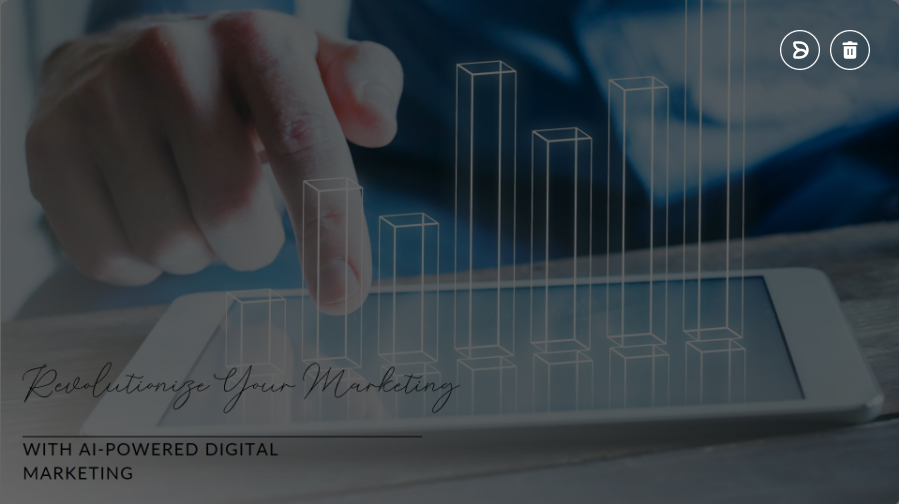
As we reach the end of 2024, digital marketing is on the brink of an exhilarating transformation, fueled by cutting-edge advancements in Artificial Intelligence (AI). AI-powered tools are revolutionizing the way businesses connect with audiences, unlocking game-changing opportunities to craft hyper-personalized, lightning-fast, and incredibly impactful strategies. With AI supercharging customer experiences and automating processes like never before, it’s no longer just a buzzword—AI is the unstoppable force driving the future of digital marketing into bold, uncharted territory.
In recent years, AI has evolved from a concept rooted in sci-fi horror to a profound and transformative force, reshaping entire industries. In digital marketing, AI has transitioned from being optional to essential, becoming a vital tool for businesses seeking to stay competitive in an ever more crowded marketplace.
In 2024, AI enables hyper-personalization at scale by analyzing real-time data to predict consumer behavior, optimize ad targeting, and deliver tailored content. This allows businesses to create highly personalized experiences while preserving the human touch that consumers desire.
AI-driven predictive analytics is revolutionizing data-driven marketing, empowering marketers to forecast trends, optimize pricing, and target audiences more effectively for smarter decision-making.
The landscape of marketing is undergoing a significant transformation with the advent of AI-powered content creation tools. These tools empower businesses to swiftly produce top-notch written content, images, and videos, enabling marketers to focus on strategic aspects while augmenting human creativity instead of replacing it.
AI is revolutionizing marketing in ways that were once considered science fiction. Voice search optimization are now a reality, allowing for improved content discoverability through natural language queries. Additionally, AI enables consumers to find products using images, opening up new engagement opportunities for e-commerce businesses.
AI-driven chatbots are revolutionizing customer interaction, offering natural, human-like conversations that efficiently handle complex queries and provide 24/7 support, resulting in enhanced customer care and higher satisfaction levels.
AI-powered SEO tools have revolutionized the way businesses increase their visibility online. These tools enhance keyword research, content optimization, and link-building, allowing businesses to improve their search rankings with greater precision. Additionally, AI-driven advertising employs programmatic strategies to ensure real-time ad placement, resulting in increased return on investment (ROI) through personalized targeting and automated optimization.
AI’s dependence on data makes consumer privacy and regulatory compliance, such as with GDPR, essential. Businesses must prioritize transparency and ethics, though this could lead to bureaucratic challenges and legal hurdles for many organizations.
In the future successful digital marketing will depend on integrating AI to enhance human creativity and strategy, delivering personalized experiences while maintaining a human-centered approach.
AI is undeniably the future across almost every industry, but it’s not here to fully replace humans—it’s here to transform how we work, much like the tractor revolutionized agriculture. Back in 2016, many feared AI would eliminate manual labor, but the opposite happened. Large language models, have shown impressive capabilities, but they aren’t on par with human intelligence. Humans remain far more versatile and capable. AI has become a buzzword; if Google had launched today instead of in the late 90s, it might have been labeled “AI.” Basic predictive algorithms now get the “AI” tag, even my new LG washing machine boasts AI features. At the end of the day, AI is just another tool, helping us streamline processes rather than replacing human intellect.